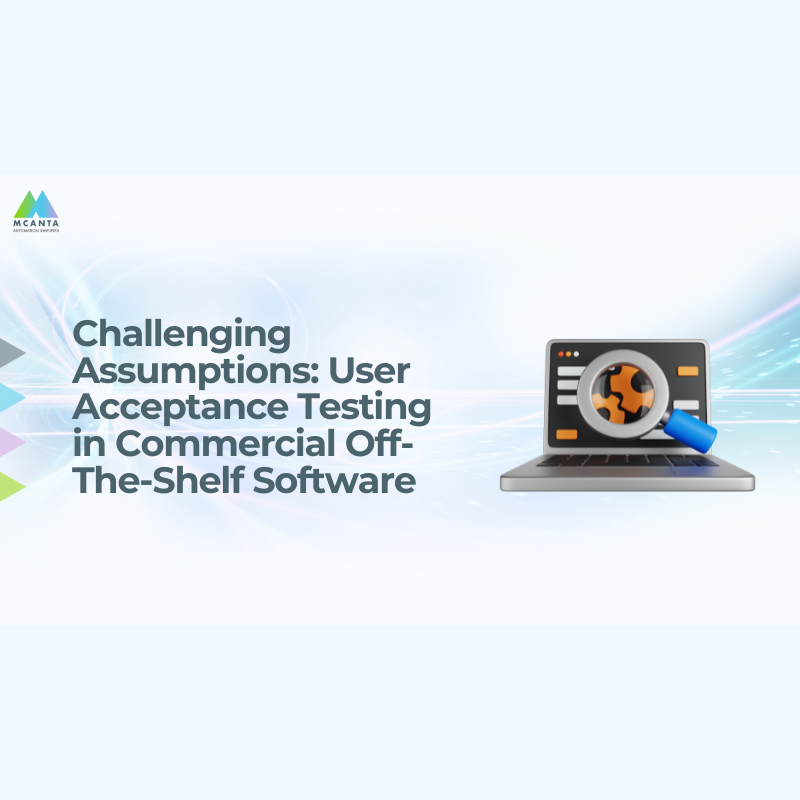If testing is an activity done by rote, because “everyone needs to test” – Don’t bother.
Ask yourself, rather: what does my team need to deliver? How can we best deliver that, within the constraints of our organization?
If you care about your users, your staff, and your customers, you’ll want to deliver quality. You want the systems in your charge to be reliable, performant, available, and usable. By adopting a long-term, user-centric approach to Quality Assurance, you can ensure that your QA efforts are aligned with your organization’s goals and that QA can be a source of value and pride rather than a last-minute cost.
What is QA?
Quality Assurance is the representative of the end user in the development and deployment process. Whether you’re managing a Salesforce or PeopleSoft integration for staff users or developing an embedded system as part of product development, the system your team produces will be used by people. QA is the strategic effort to maximize delivered (and perceived) value with controlled cost and with minimized risk.
What Does QA Deliver?
First, QA addresses major risks. A system that is unreliable, that crashes, or (worse) that produces unreliable results or (worst) corrupts data, is costly in direct cost, in wasted staff time, in reputational damage, and perhaps in even in regulatory consequences.
Second, QA safeguards the user experience. By probing for possible bugs, by ensuring that requirements are examined from a user perspective, and by investigating possible as well as expected uses of the system, QA can be your early warning system to prevent unhappy users.
Third, QA done right increases efficiency. By providing accurate and reproducible bug reports early in the development and release process, QA can greatly reduce the cost of bug fixing and remediation. In addition, QA is part of the learning process that’s central to a continual improvement strategy. Any bug that does escape into production should result in both a bug fix and a new test case; the test case is part of the organizational memory that prevents a recurrence of that mistake.
What Does QA Do?
The QA organization is responsible for test design and execution, for communication with the stakeholders and developers, and for optimal allocation of QA and test resources.
Any QA effort must be tailored to the specific needs of the organization. Any testing effort must be gauged to the risks addressed, balancing risk, cost, time-to-market, and user expectation. Once the correct level and kind of testing is decided, the QA organization is responsible to deliver the results of that testing as efficiently as possible, in order to maximize the ROI for the organization.
What Are The Challenges?
Too often, testing is seen as a bolt-on overhead cost center and an adversary of the development organization. In reality, QA can and should be a source of pride and an ally of the development organization in the common goal of providing a wonderful user experience at minimal life-time cost.
MCANTA’s Approach: Proof of Value and Incremental Learning
At MCANTA we advocate for a proof of value model that focuses on pinpointing areas for improvement and implementing incremental changes. By adopting this approach, organizations can alter the perception of testing as a “time sink” and start seeing results sooner. Our approach emphasizes the immediate value of effective testing models, showcasing the productivity gains and ROI from day one.
Embracing Change: From Reactive to Proactive QA Practices
Too often, organizations wait until an unfortunate release to prioritize QA. By adopting a proactive approach to quality assurance, organizations can identify and address issues before they escalate, ultimately saving time, money, and reputation. By showcasing the tangible benefits of QA, organizations can overcome resistance to change and embrace a culture of quality. It is far more cost effective to invest in QA upfront than to retroactively fix a damaged brand image from a failed release, time management pitfalls, or inefficient uses of staff resources.
Unleashing the Power of Quality Assurance
Quality Assurance is not just a checkbox on a development roadmap; it’s a strategic imperative for ensuring operational excellence. By recognizing the true value of QA, understanding the areas for improvement, and embracing a proactive testing approach, organizations can unlock the full potential of QA and propel their products to new heights of success.
At MCANTA, we’re here to help you navigate the complexities of QA and achieve excellence every step of the way. Contact us today to learn more about the value we can provide for your organization.




